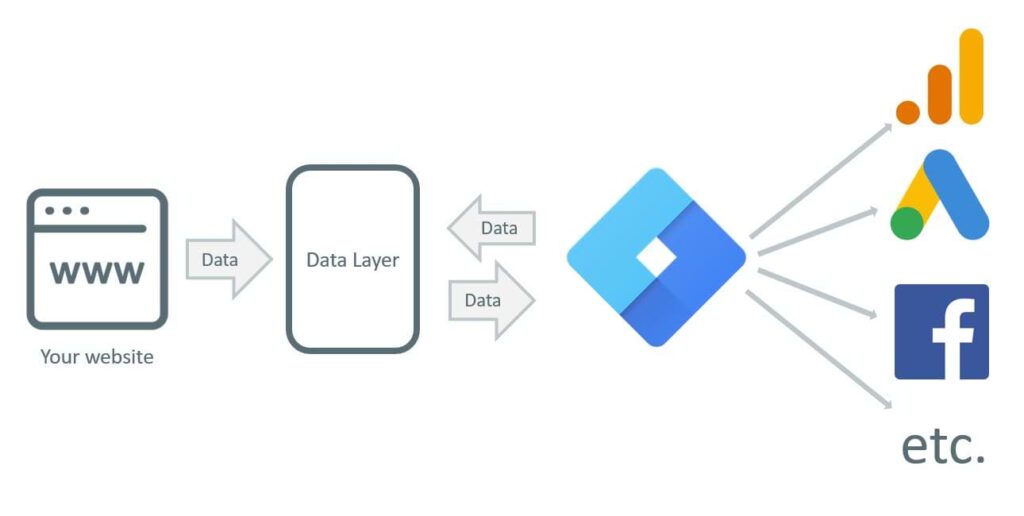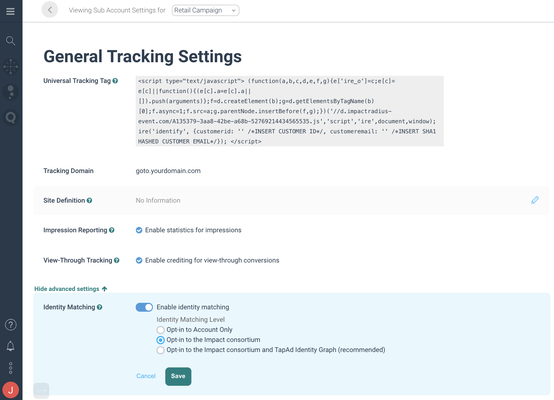Tag Management demystified – everything you need to know
Tag management is one of those foundational marketing tools that runs on the back-end. While most digital marketers have a basic understanding of tag management applications, they may not fully understand the benefits, feature set, or likely ROI.
Admittedly, Tag Management isn’t the sexiest marketing topic. However, when you talk about empowering digital marketers to own, collect and act on their data in real time, then Tag Management starts to sounds a lot more interesting.
What is Tag Management System and How Does it Work?
Tag management addresses the need for more agile marketing measurement and more accurate tracking. Using a Tag Management system lets marketers easily insert snippets of code which enable third-party tracking, analysis, reporting, remarketing, conversion tracking, optimization, and much more.
These systems act as a container/repository for all the scripts on your website, including code that listens to rules in the tag manager’s backend as to when to fire what tags.
A universal container tag (UCT) is a master tag that manages all other tags you would normally embed in a page. Beyond controlling the firing logic of other tags, there are a number of other functions UCTs serve.
This means that when users go to certain pages, or take particular actions, the system will trigger various tag/tracking scripts/snippets. This sends a notification to your analytics tool, paid search, affiliate, display, email, or other campaigns that an action took place or will launch some functionality on your site such as a chat window.

Who needs it?
Any business that runs a wide range of marketing campaigns through multiple channels — including display, social, search, affiliate, and email — and who employs multiple tracking platforms, would benefit from a good tag management system.
These marketing efforts can get very complicated very quickly – especially when trying to control analytics tools, tests, and reporting. Put simply, you’re wasting time and money if you’re unable to move quickly to track new campaigns and alter them for maximum performance.
A study, called the ROI of Tag Management, from market researcher Econsultancy, reported that 73 percent of those respondents using a tag management system said that the process was faster than manually tagging and 42 percent said it was “significantly faster.”
Speed, Ease-of-Use & Accuracy are the Key Factors
Tag management systems allow marketers to easily make changes to tags and collect more accurate data while also enhancing the performance of a site. These 3 factors combined helps to boost your conversion rate.
Quick Updates & Website Performance
“We don’t change tags that often…”
If this is something you’ve said (or thought) recently, you might need to update your thinking. A study released by market research firm Forrester states that managing tags becomes an ever more demanding task as an organization’s digital presence evolves.
73% of users edit existing tags, and 59% add new tags at least once a month. Tag management assumes many forms as firms add or change vendors, add new sites and pages, and revise channel and campaign tracking requirements.
Website Performance & Speed
With a good tag management system you might even see improvements to your site performance. That’s because asynchronous tag loading speeds up page load times, enhancing both user experience and conversion rates.
eConsultancy reports a 64 percent noted an increase in site speed when using a tag management solution. This varies by the TMS used.
Studies have shown that for every 1 second delay it takes for a page to load, up to 7% of conversions can be lost. And with every tag you add, your page load time increases. By utilizing a UCT and having only one tag to load on a page, your load time decreases and your conversion rate should increase.
Implementing & Managing Your Tags
“Isn’t this something IT pros are supposed to deal with? I’m not overly tech savvy…”
Traditionally, the adding, deleting or editing of marketing tags was a tedious process that required IT involvement (to manage hundreds of pieces of JavaScript code). But a good tag management system changes all that.
How? Tag management systems centralize these scripts and remove the tracking from the HTML itself, making it easier to modify, add, or remove tracking at any time. By enabling marketers to manage tags without IT involvement, tag management empowers marketers, streamlines workflows and reduces cost.
Tag Managers make it easy for non-technical marketers to manage tags by allowing tags to be tested, changed, added, or removed without having to go into the website.
You don’t have to be a developer, coder or IT pro to use a tag management system. However, you need to have a good understanding of how to write the rules for the system you select. Just like any complex program (think a CRM application or Excel) the interfaces of tag management programs are simple, but the power lies in being able to use more advanced features.

Free versus Paid Tag Management Solutions
OK, so maybe you don’t need to buy a fancy Mercedes if you’re only driving to church on Sunday. But then again, if you had a Mercedes, maybe you’d take more road trips.
There are some free — or open source — tag management applications you may wish to consider. Most provide solid, fundamental features that will satisfy the basic needs of some users. However, the paid versions include sophisticated features that will allow you to take basic tag management to a new level.
Some of these advanced features include:
- Built-in Library of Third-party Vendors:
- Most enterprise solutions have hundreds of tags in an easy-to-use tag library. This means adding new tags is a simple point-and-click process, resulting in faster integrations with less chance of mistakes.
- Enhanced Stability and Compliance:
- This enables identification of tags that impair site performance, violate site policy and/or do not comply with statutory requirements. This includes enterprise features such as roll-back, audit of who did what, and ability to implement strict access controls.
- Conversion De-duplication:
- This lets you credit and pay just one source for each conversion. Realize a 5 to 20 percent savings on CPA spend.
- Flexible Rules Engine:
- This permits you to fire tags based on: first traffic source, last traffic source, a browser cookie, amount purchased, and more.
- Tag Kill Switch:
- Enables you to stop under-performing tags from loading.
- Manage Site & Testing Environments:
- This feature lets you easily test tags, variables and firing rules in any environment before deploying.
- Tag Analytics:
- Understand what tags are loading slow and impairing your site speed and where they are firing.
- Server-to-server tracking:
- Eliminate the need to load a tag all together and implement notifications using server-to-server communication instead of tracking tags.
With the paid versions you will be able to do more, and will likely end up finding new and better uses for the tags. Put simply, the more you use it, the more you will appreciate it. What’s more, having features that meet or exceed your current needs can unlock new opportunities for growth.
Another consideration with free versions is that if you need robust or rapid technical support, you’re on your own. Paid products include service plans and the ability to speak with a real specialist when the need arises.
What is the impact on other companies we work with?
Tag management systems allow you to build a sophisticated marketing platform and still integrate with third-party tags. In fact, most big companies are “data hungry” and use some form of tag management. Having your own TM system will enable you to work with more sophisticated companies, do more with your own data, and help empower the companies you work with.
How does this work with my mobile websites?
Mobile is huge and will continue to grow. Most paid tag management systems include features that allow the tags in your mobile friendly apps or website to talk to other tags. This is critical as users shift to mobile devices to interact with businesses.
Where’s the ROI?
EConsultancy said 73% of those using a tag management system reported reduced tag management expense, while 45% described it as significantly less expensive than manually updating tags. So if your company does multi-campaign marketing across multiple channels today, you should definitely explore the benefits of a good tag management solution.




